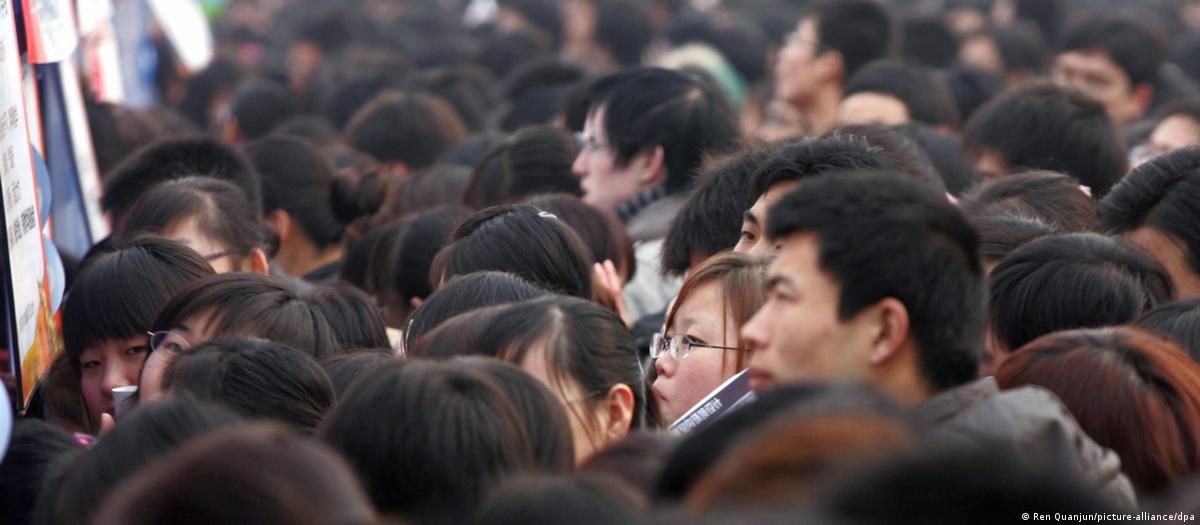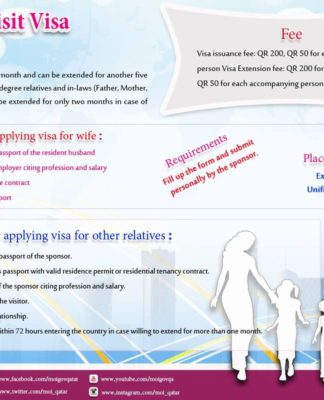BUSINESSCHINA
China: Young people feel the crunch in tough job market
William Yang in Taipei
06/09/2023June 9, 2023
Youth unemployment in China is at a record high. Many youths are now considering either “lying flat” — refusing to pursue a career — or leaving the country.
https://p.dw.com/p/4SNG8
A tightly packed crowd of youths in China
Young people are almost four times as likely to be unemployed in China compared to the general populationImage: Ren Quanjun/picture-alliance/dpa
For Annie and many young people like her, surviving in major Chinese cities seems like an endless struggle.
“It’s been very difficult for young people to find jobs, and the level of income has also been dropping,” she told DW. Due to the sensitivity of the subject, she asked to be identified only by her first name.
Despite China’s economy recovering since the end of last year, when the government abolished the strict zero-COVID strategy, the country’s youth unemployment rate remains at a record high. Official data shows that some 20.4% of people between 16 and 24 years of age were unemployed in April. In fact, this group is almost four times as likely to be jobless compared to the general population, with the overall unemployment rate at 5.2%.
Moreover, millions of college graduates are expected to join the labor market later this month.
“The youth unemployment problem is only set to worsen probably over the next year or so,” said Shehzad Qazi, managing director at China Beige Book, a New York-based company offering economic data from China.
China has seen two decades of unprecedented economic growth. However, as it tries to shift from a low-cost manufacturing economy to a high tech and services-led economy, youth unemployment is growing faster than the jobless rate in other age groups.
And there is another factor in play — during the pandemic, the Chinese government rolled out a series of crackdowns targeting the tech, education, entertainment and real estate sectors, aiming to improve state control over big business. This resulted in tech giants like Tencent, Alibaba, and Weibo, which employ a lot of highly educated young people in China, all announcing major job cuts in recent months.
How China is reining In its tech titans
17:05
COVID hit China’s service industries
For millions of China’s young college graduates, the lack of attractive career opportunities is now a devastating reality.
“So many people have been laid off during the pandemic and now when they try to look for similar jobs in the business, finance, media and technology sector, they realize that well-paying jobs seem to be tailored for people with several years of work experience,” Annie told DW.
According to the US-based investment bank Goldman Sachs, young people tend to be more vulnerable during economic downturns, because they have less work experience. The situation in China has been exacerbated by the COVID-19 pandemic, which severely impacted the service industries.
“As a result, we might see youth unemployment continuing its upward trend in the next few months,” Goldman Sachs economists wrote in a report released last month.
Fewer and fewer ‘decent jobs’
The report also noted a misalignment between the skills that college graduates have acquired through higher education and the skills required by employers. According to their latest report, this issue is especially noticeable in industries like education and sports.
“For instance, the number of graduates in education/sports disciplines grew by more than 20% in 2021 relative to 2018, but hiring demand among educational institutions weakened materially over the same period,” according to the investment bank. The Goldman Sachs report also states that recent regulatory changes affecting information technology, education and the property sector may have weakened demand for new employees.
Some experts also point to the general lack of “decent jobs” both in China and across the world.
How China deals with its aging population
06:47
“Often times it’s described that college graduates don’t want to take factory jobs, but the trends in China and the world are that there are fewer decent jobs, which are jobs with a relatively high degree of job security and jobs that offer benefits or a wage that’s high enough to live in the city that young people live in,” said Eli Friedman, a professor at Cornell University whose research focuses on labor and development in China.
Vincent, a Chinese man in his 20s, told DW that many companies have started to demand longer working hours since the pandemic, while at the same time cutting the employees’ salaries or halting raises. As a result, many of his friends have been choosing to “lie flat” — a term describing young people in China taking a break from relentless work. Others are preparing to “run away” from China.
Urge to ‘run away’ could show doubt in the system
In a bid to reduce youth unemployment, the Chinese government rolled out a 15-point plan including traineeships, a promise of more jobs at state-owned enterprises, and support for young people looking to become entrepreneurs.
Qazi from China Beige Book said that these measures are important, but that Beijing also needed to focus its energy on revitalizing the private sector and small businesses so they can invest and hire.
“There are solutions that can be discussed, from regulation to changes in policies that make it more accommodating for people to start businesses,” he said.
While the youth unemployment crisis is unlikely to pose any political threat to the Chinese government, experts agree that it could make some urban youths understand that “there is no limit on state power” in present-day China.
According to Friedman from Cornell University, young people’s urge to “run away” could indicate a lack of faith in the political system. “If they don’t have faith in the stability of the system, and you don’t see any capacity to change it, running away is a rational response to that situation.”
Edited by: Darko Janjevic






























